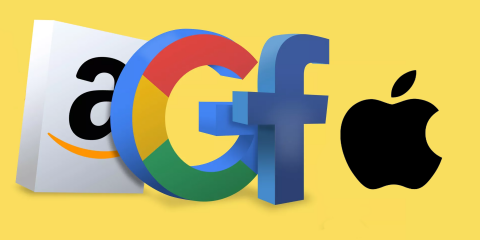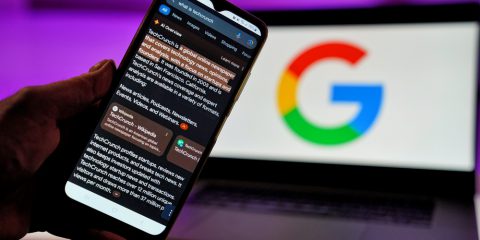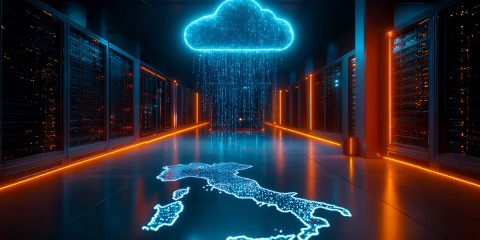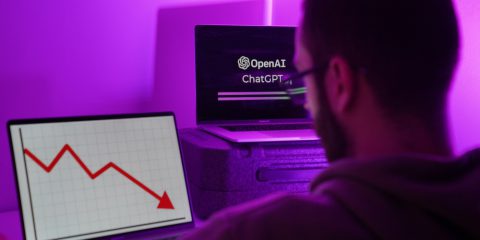CANALE PODCAST

Intervista esclusiva di Key4biz a Vinton Cerf, che da oggi 3 ottobre 2005 inizia a lavorare per Google. Il nostro inviato ha raccolto la sua testimonianza in esclusiva europea per svelare al pubblico italiano i piani futuri di Google. La tradizionale attività di motore di ricerca verrà ceduta? Google si dedicherà in futuro solo al VoIP ed alla IP-TV? Scopritelo da voi.
Sessantadue anni, barba grigia, Vinton Cerf è conosciuto come ‘Il padre di Internet’ per avere inventato, insieme a Robert Kahn, il protocollo TCP-IP; praticamente l’ossatura della Rete (http://tcp.dcs.st-and.ac.uk/_papers/ck74.pdf). Quando lo senti parlare si capisce però perché Larry Page, Eric Schmidt e Sergey Brin, lo hanno voluto in Google come Chief Internet Evangelist.
Intervistare Vinton Cerf non è una cosa che capita tutti i giorni e sinceramente ne sono rimasto emozionato.
Key4Biz lo ha incontrato a Venezia in occasione del First World Conference on the Future of Science, soprattutto grazie all’aiuto del Prof. Maurizio Dècina che ha coordinato insieme a Tommaso Poggio, neuroscienziato dell’MIT, un’importante panel sul Future of Information and Communication
(www.veniceconference2005.org/22nd.htm#2)
Potete ascoltare l’intervista completa scaricando il relativo Mp3, realizzato appositamente per il Canale PodCast di Key4Biz.
Vinton Cerf è una persona carismatica, che sa comunicare l’entusiasmo della ricerca e della scoperta.
Dopo aver speso gli anni dal 1976 al 1982 presso il l’ARPA (Advanced Research Project Agency) in qualità di ingegnere del Dipartimento della Difesa e aver gettato appunto le basi di Internet, ha lavorato quattro anni presso MCI, uno tra i più grandi provider americani del tempo, realizzando la prima versione di un software commerciale capace di poter inviare e ricevere le email. Dal 1986 fino al 1994 ha promosso la Corporation for National Research Iniatives, quindi è tornato in MCI a studiare la comunicazione ‘interplanetaria’ dal 1994 fino a ‘ questa mattina, primo giorno di lavoro a Google.
Continua ancora oggi a ricoprire la carica di Chairman presso l’ICANN (Internet Corporation for Assigned names & Numbers).
Come sentirete dal podcast/intervista rilasciata in esclusiva europea a Key4Biz in occasione del suo ‘primo giorno a Google’, Cerf oggi affronta la nuova sfida di far parte di un’azienda leader della Rete, con oltre 4.200 persone, per la maggior parte sotto i 30 anni.
Qui Vinton Cerf si occuperà dei servizi core per il futuro di Google, che in molti pensano non siano più rappresentati dal motore di ricerca.
La chiacchierata che ci ha rilasciato ne è una ‘conferma nei toni’, visto che ci ha confessato che i progetti su cui lavorerà attivamente saranno da subito la televisione, il Voice Over IP e’
Nell’intervista emerge come il consumo asincrono di televisione e radio, cioè la libertà di scaricare dalla Rete contenuti televisivi per poterli rivedere quando lo si vuole, sia considerata da Cerf il prossimo passo tra gli avanzamenti più significativi di Internet.
Potete sentire l’intervista completa scaricando l’mp3 Podcast realizzato per Key4Biz.
Le tematiche introdotte dagli studi di Cerf sono più che mai attuali.
Il protocollo IP è prossimo a essere evoluto alla versione ‘IP v.6‘, l’unica in grado di assicurare che il traffico di tutta la Rete Internet possa essere sostenuto dalle nuove evoluzioni, come la banda larga, la telefonia, la televisione.
Oggi infatti i 4.3 miliardi di indirizzi Internet disponibili in Rete sono già prossimi alla saturazione. Occorre che nuove risorse vengano liberate anche per la connessione interplanetaria che sarà utilizzata per collegare più stazioni spaziali attraverso lo stesso protocollo, un’evoluzione del TCP-IP nella missione in programma su Marte nel 2009.
Parte del lavoro svolto da Cerf in collaborazione con il NASA‘s Jet Propulsion Lab è stato quello di permettere che le missioni spaziali in partenza possano nel futuro utilizzare la mole di dati che ognuna delle precedenti missioni ha accumulato e scambiarla in ‘tempo reale luce’ con altre missioni in quel momento in orbita.
(http://businessweek.com/magazine/content/05_27/b3941021.htm).
Lo stesso Vinton Cerf ne fa un accenno nel podcast, confermando per la prima volta in un’intervista come nell’accordo firmato con Google vi è per lui la possibilità di poter continuare a condurre questi studi.
Fino ad oggi Vinton Cerf ha ottenuto enormi risultati scientifici e riconoscimenti (si veda http://en.wikipedia.org/wiki/Vint_Cerf), compreso quello che è considerato come il Premio Nobel della Tecnologia, ovvero l’Association for Computer Machinery Turing Award nel 2005.
Nel 1997, su proposta dell’allora Presidente Bill Clinton riceve la nomina insieme a Robert Kahn per la Medal of Tech, che rappresenta ‘the highest honor awarded by the President of the United States to America‘s leading innovators given annually to individuals, teams, and/or companies/divisions for their outstanding contributions to the Nation‘s economic, environmental and social well-being through the development and commercialization of technology products, processes and concepts; technological innovation; and development of the Nation‘s technological manpower‘. È l’anticamera del Nobel per la tecnologia ricevuto quest’anno.
Vi anticipiamo qui alcuni dei passaggi salienti dell’intervista.
Tra le domande rivolte a Cerf:
Parliamo di televisione, VoIP e in generale di Triple Play: da più parti si dice che Google abbandonerà il business del motore di ricerca, alcuni pensano che potrebbe vendere quella divisione, dopo il lancio di GTalk e l’annuncio di un servizio VoIP pronto a fare piena concorrenza a Skype e VoIP Buster. Ma alla televisione ci state pensando, visto che lei parla sempre di BitTorrent e P2P negli ultimi mesi?
Quale sarà l’argomento della prima email che manderà oggi ai dipendenti di Google che l’aspettano per discutere di nuovi servizi da lanciare nei prossimi mesi?
E‘ vero che il suo ruolo, deciso con Page, Schmidt e Brin,, sarà quello di armonizzare la super-creatività oggi presente in azienda, definendo meglio i business models dei nuovi servizi?
Ecco alcuni frammenti delle risposte di Vinton Cerf:
[…] Nothing is more exciting than working with young people. There’s a lot of energy at Google, so many new ideas are on the air and the Top Management needs to figure out which of these ideas make sense. The company promotes people to spend 20% of their time to ‘think outside the box’ (on new ideas). I‘m going to spend a lot of my time just going around to visit Google Labs, meeting people work there, giving a sense for who is doing what. There’s a very determined effort at Google to share information among more than 4.000 employees in the laboratories. What I’m more interested in doing is help to both provide some guidance and advice to people who want to try think out and to link people together so that ideas might be mutually reinforced.
[…] I will continue work on the Interplanetary project with NASA‘s Jet Propulsion Lab. Google has given me permission to continue in that activity, it is part of the terms of our agreement.
We can use standard TCP-IP on the surface of a planet and in the spacecraft itself but we have to use a different protocol in the interplanetary part of the space because the standard TCP-IP and IP protocol don’t work very well for delays associated with the long distances even at the speed of life […]
[…] Regarding VoIP is very important to understand that basic telephony over IP is not going to be a revenue producer.
There’s a period of time when we’ve to bridge the PSTN on the Internet, trough special services’ gateways that you could not charge money for. You could make an argument for the wireless network, but also all the mobiles are becoming Internet enable.
It‘s really critical to understand that the business model for traditional telecommunication companies must change in order to permit sustained growth of those companies.
So in the long run Voice Over IP will be the ‘normal’ way, for even known devices, to work.
The Skype example and Google example (on VoIP) are important. So you can anticipate that Google will continue to follow its innovative business model on future VoIP services, these will be based for example on the integration of the ‘pure‘ voice transport (commodity) with gamers online (premium integration of voice) […]
[…] There‘s a strong focus right now on carrying video in the Internet.
The ways of video consumption is changing, it demonstrates a very interesting potential change in the consumption habits which will have a subsequent impact on advertising that supports television entertainment. The more we move towards recording videos (entertainment, educational, sports material) rather than live watching, the less people won‘t feel compel to watch at a certain time, at a certain date.
Especially the younger generation is quite comfortable recording everything and watching whenever they want. TiVo product is an example and I want to point out that 85% of all the video distributed on broadcast networks is pre-recorded material, the news today is that it doesn’t matter when you download it and where you could watch it. The most of the video that we watch could be downloaded in non-real-time, maybe 15% need to be watched in real time because its breaking news, sports events.
I‘m anticipating that our way of interacting with video entertainment is going to change, when we have IP-TV we‘ll have very different way to watch.
The talk of full interactive television, it will never happen, the closest to get is TiVo business model.
Google is all about interaction with the content over the Internet and that‘s of course the future, in the new TV! […]
Ascolta il podcast:











